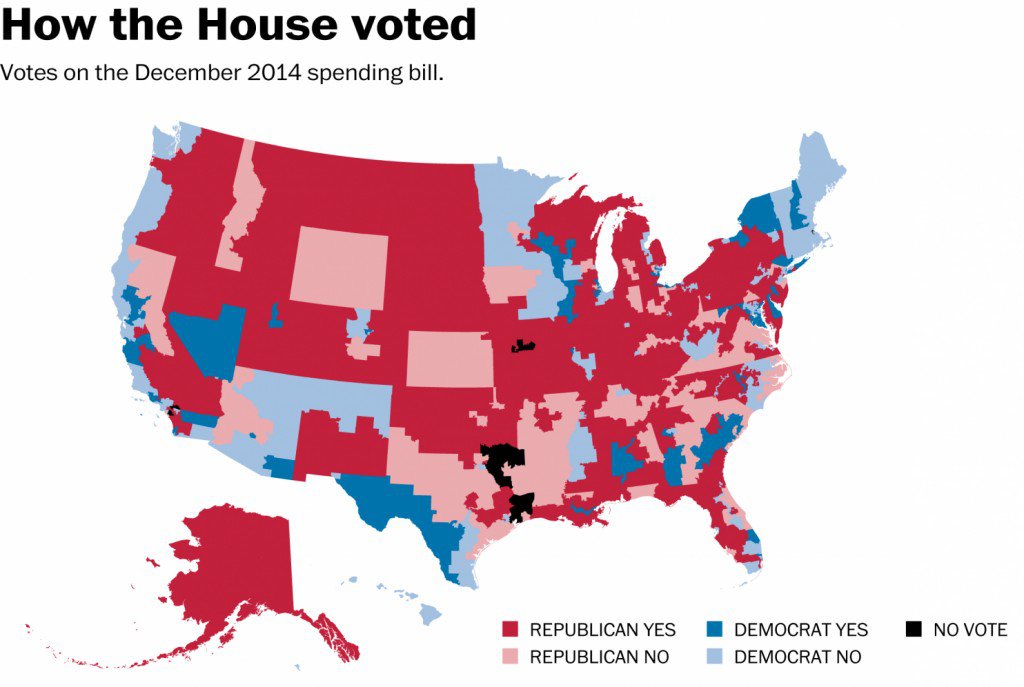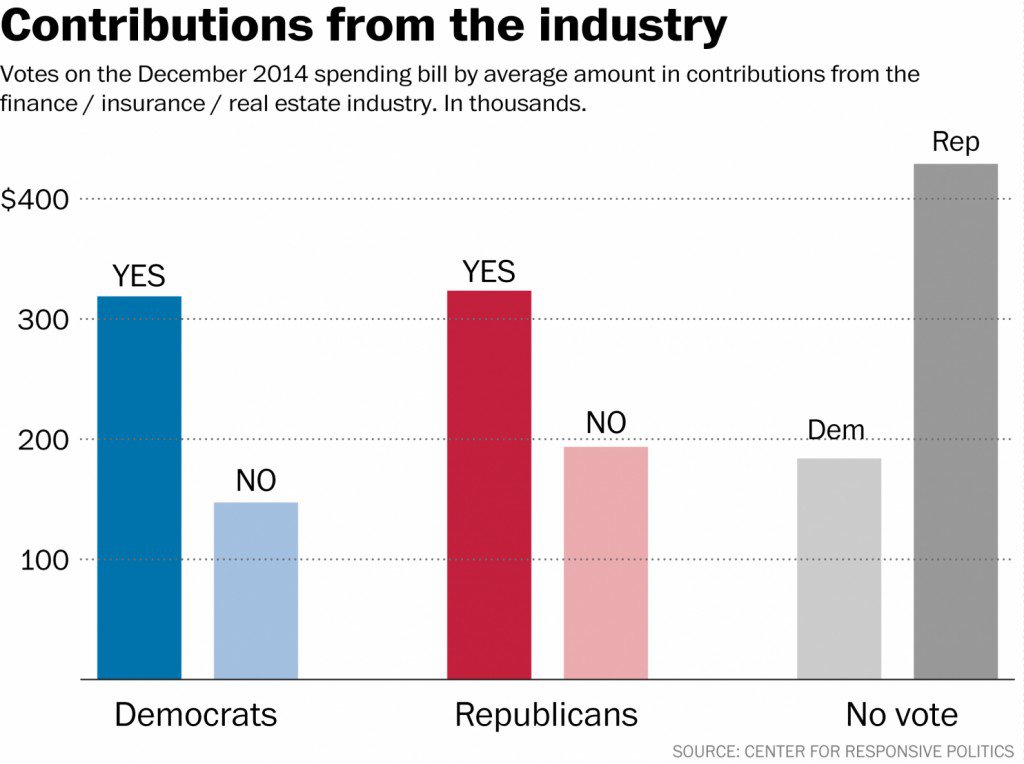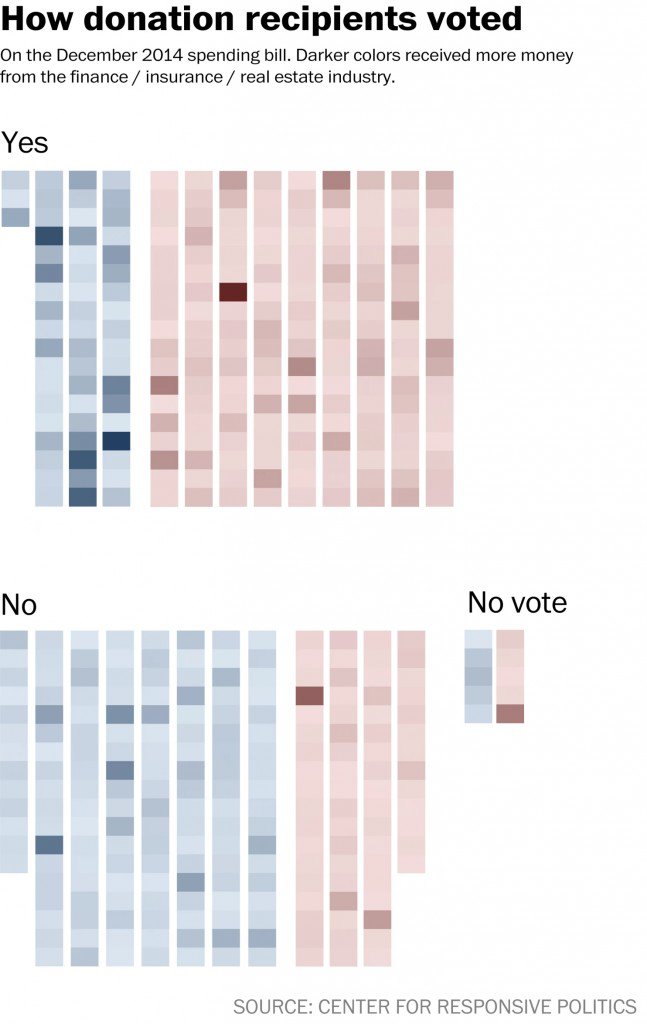Fifty More Ways to Leave Leviathan: Innovation and Entrepreneurship can make you Freer
by Max Borders and Jeffrey A. Tucker:
It’s been over a year since we published “50 Ways to Leave Leviathan.” That successful piece showed how innovation and entrepreneurship are gradually undermining the top-down, command-and-control approach to governance.
It is happening quickly by any historical standard, but it is also happening incrementally in ways that cause us not to notice. The bigger the pattern, the more slowly we tend to recognize it. The bigger the implication, the more resistant we are to acknowledging it.
We even take it all for granted. In reality, the ground is shifting beneath our feet. Those in power feel it, and it scares them. The innovation can be slowed, but it can’t be stopped, much less reversed. This great transformation is already underway.
The theme, as always, is human freedom, which is the insuppressible urge within all of us to live full and ever more prosperous lives, regardless of the barriers put in the way.
Here are 50 more ways to leave Leviathan. Each one is worthy of a separate article and analysis, but assembling them this way shows how one paradigm of social and economic organization is crumbling and another is taking its place. The unrelenting power and energy behind these innovations and workarounds are making the old models of social organization obsolete.
1. Become an e-resident of Estonia. Estonia was once an unwilling satellite of the Soviet socialist empire. Today, the country is leading the way toward the breakdown of nation-based political organization, especially with its new e-resident program. Anyone can become a resident for $61. What can you do with that? Well, you get a cool card, and there might be some business and banking benefits. No one knows for sure, not even those who champion the program. But it’s a step in the right direction. Digital residency might mean more than physical residency in the world of the future.
2. Skip licensing with TaskRabbit. Occupational licensing is one of the dumbest ideas ever, a real holdover from 18th-century mercantilism. Why must we create a state-protected cartel for every task? Well, TaskRabbit is helping to bust them all up with a system for connecting service providers with service seekers. Know how to fix a sink or need one fixed — or hundreds of thousands of other tasks? Get connected in minutes. So much for the gatekeeping monopolists who stand between us and our needs.
3. Get anything delivered with WunWun. When you need a government service, you get it on their terms. More and more, when you need anything else, it will come to you. WunWun is fairly new and only operates in New York and San Francisco, but you can see where this idea is headed. Click a button on an app and, if it can be brought to you on a bicycle, it will be there in no time. You pay with a credit card. This service is going viral, and paying with cryptocurrency will be an option.
4. Hire or be hired with oDesk. In the old days, getting a job meant impressing a company enough to take you on long term. But in the digital age, anyone can work for or with anyone else, and oDesk is one of hundreds of platforms that make this possible. Freelancing was once the exception, but with government rules and mandates making conventions less viable, millions are turning to task-based employment. Work for whomever you want, whenever you want. It’s a great way to overcome the barriers of the regulatory state.
5. Moonlight with eLance. If you have a skill and a job, but government regulations limit you to 30 or 40 hours of work per week, you can still put those nights and weekends to productive use. Many services, such as eLance, allow you to pick up extra cash without checking with the central authorities. It is completely beyond the capacity of the Department of Labor to monitor this type of work. They call it “exploitation,” but we all know it’s just a matter of making ends meet.
6. Foil the revenue cops with Fixed.com. Since the financial crisis of 2008, local governments have been hurting for revenue, so they unleashed the cops to bring in the money. This is one major reason why nearly everyone feels oppressed by the police these days. But the app economy has come to the rescue. Scan your ticket and submit, and a local attorney will push for dismissal. The fee you pay is a fraction of what the government demands. For now, it’s mostly a San Francisco service, but it will soon expand.
7. Put that car to use with Getaround. You have to get somewhere, but it is not always easy because government transit systems are so terrible. Now there is a way to share your car with others and make money at the same time. This app, one of many such services, allows you to rent a nearby car for the day, putting idle resources to work without crazy government mandates for carpooling and public transport. It’s the market at work fixing yet another big problem.
8. Your house becomes a restaurant with EatWith. Why should the regulators say what is and what isn’t a restaurant? If you have a kitchen or an appetite, there are others who might want to make an exchange with you. Such services are busy every day busting up the eating cartels. They are also helping to bring back the dinner party.
9. Get a business loan at the Funding Circle. The Fed broke the banking system in 2008 with its crazy bailouts and zero-interest-rate policies. It is not a reliable source for doing what banks have always done to make money. But the private sector has come to the rescue with online sources for business loans. The interest on such loans is market based, revealing the weird world we have today with regard to interest: there’s the official rate, and then there’s the real rate.
10. Monitor overlords with copblocking. It’s become a thing now that the police are filmed by regular citizens all across the United States and the world. Ten years ago, filming a cop might have gotten you arrested. Today, there is nothing they can do about it, since everyone carries a video maker in her pocket. Filming is not a perfect solution, but it sure makes the cops more accountable. Livestreaming means that the video is still out there even if your phone is confiscated or smashed. Copblocking has become a way of life.
11. Try mobile health care. Time was when health care came to you. As the industry became more cartelized and expensive, the industry dictated the terms and you had to go to them. But regulations have pushed matters so far that the system is breaking down, and many providers are seceding toward a consumer-driven model. Even companies like Uber are looking into putting doctors and nurses on wheels. Such services will only be for the well-to-do — for now. But just as mobile phones got better, faster, and cheaper, so will health care delivery. Mobile health care startups are already attracting a lot of venture capital. First up: Uber for hangovers. (Note: Uber Logistics is coming soon.)
12. Get married on the blockchain. Marriage before the 20th century could be a purely private affair between individuals or within religious institutions. States took over marriage in the 20th century with licenses and strictures everywhere. There’s no better way to depoliticize this institution than finding another way to contract a marriage besides going to the State. The blockchain — bitcoin’s payment system — is perfect for posting contracts that are time-stamped, nonforgeable, and verified. Why not let it be the way out of State-controlled marriage? (See Bitnation.)
13. Use blockchain contracting. People who love the distributed ledger have counted fully 84 possible uses of the blockchain for keeping all kinds of records and contracts, including public and private equities, bonds, spending records, crowdfunding, microfinance, land titles, health records, forensic evidence, birth certificates, wills, trusts, escrow, business accounting, and just about anything else that involves contracts. This is serious future stuff: a fully functioning body of law in the cloud that works without lawmakers or bureaucrats.
14. Manage transactions with Counterparty. Let’s say you have an idea for a legal institution that isn’t yet available, or you want to pioneer a new system for business-to-business exchanges and invoicing. There are at least two well-funded platforms that specialize in innovation on distributed networks: Ethereum and Counterparty. They are busy working (in private) with some very large companies right now. Private, lower-cost alternatives to government are on the way.
15. Encrypt your smartphone data. Ever since people became aware that government is using surveillance to track our every online move and every phone call, people have demanded solutions. Apple was the first to act to encrypt all smartphone data to the point that not even the company itself can access it (iOS8). The same change is being made to the Android operating system. The FBI went nuts and denounced this encryption, but it’s too late. Users feel safer, and there’s no going back.
16. Buy and sell through Open Bazaar. Last year, the government took down the Silk Road online marketplace, seemingly ending a peaceful solution to the violence of the drug trade. Several more sites popped up to take its place, but the ultimate solution lies with a distributed network with no central point of failure. This is what the company Open Bazaar is doing. It will be a marketplace that anyone can download and implement. It lives on a network too diffuse to be dissolved. And it is designed for bitcoin.
17. Use tax preparation software. It is nearly beyond the capacity of mere mortals to prepare taxes by hand these days, but software has come to the rescue. There are so many packages available that put the power of a huge team of accountants in the hands of every person, and at a very low price. It’s amazing to see how the private sector has managed to save us time and money in this most arduous task.
18. Ditch school and go Praxis. Everyone knows there is a huge college bubble developing, with debt and costs exploding. The question has been: what will replace the traditional path to higher education? Innovative alternatives combine work and study into affordable one-year programs that bypass traditional college entirely. The student integrates into a commercial space and thereby completes the program having obtained actual, valuable skills. That’s a massive change for the better.
19. Enjoy pot legally. Forty years ago, Richard Nixon started a war on pot as a political maneuver. It boosted his credibility and attacked his enemies. Sadly, tens of millions of innocent people have been abused and caged as a result. But the public isn’t standing for it anymore. States and cities are decriminalizing it all over the country in response to noncompliance and voter revolt. Nearly half the states have liberalized. Only the South remains to act in some form. It’s a beautiful thing to see freedom from the drug war dawning at last.
20. Build your car from a kit. Federal regulations have made a mess of car coolness over the years, mandating higher hoods and trunks and dramatically reducing visibility thanks to safety standards (even as fuel economy mandates lighter cars). Whatever happened to the car of the future that looked sleek and amazing, like an arrowhead? Well, there is a loophole: you can build your own. This is what FactoryFive allows you to do. How satisfying to drive an embodiment of the rebellious spirit!
21. Become a homebrewer. It’s seems incredible that the United States once banned the production and distribution of alcohol by constitutional amendment. Talk about nuts! Prohibition was repealed in 1932, but the prohibitionist mindset is still with us. That hasn’t stopped the homebrewing of beer from taking off in a dramatic national trend, however. The craft-brew movement started with a guy working in his basement. It’s now a large commercial industry to supply enthusiasts. Be your own bootlegger.
22. Contribute to community charity online. The rap about capitalism is that it’s all about greed. That’s nonsense. A major employment of capitalist tools has been the building of huge community-based networks of philanthropy. Through sites like Groupon Grassroots, you can now support a large variety of meritorious projects right in your own neighborhood. Charity has never been more networked and effective as compared with tax-funded transfer payments.
23. Grow plants from open-source seeds. Since the movie Food, Inc., the public has been widely and rightly upset about patented seeds. Seed patents conflict with 6,000 years of agricultural practice in which people save and share seeds. The Open Source Seed Initiative is fighting back against government-protected monopolists by producing excellent seeds for sharing around the world. It’s the application of the most successful software model to the practice of growing food. No government agents or crony thugs involved.
24. Live in a tiny house. Since at least the 1920s, the American dream has been all about home ownership — and the bigger, the better. Bankers loved it and so did government, which subsidized the trend for the rest of the century. Then the system exploded in 2008. Today, people are busy rethinking, and one result is the tiny house movement. Tiny houses are affordable, easy to keep up, and allow for flexible and light living. They’re also illegal in most municipalities, but thankfully they can also be mobile.
25. Sip ayahuasca tea from abroad. Native populations of South America have used the herb ayahuasca for centuries as a natural hallucinogen. They say it makes profound spiritual revelations possible. Maybe. But whatever: the drug warriors hate it. That hasn’t stopped the development of an active market for spiritual tourism and for acquiring ayahuasca teas from abroad. Nothing can stop the forces of supply and demand.
26. Attend Voice & Exit. This festival of the future is poised to give TED a run for its money. The idea — the human algorithm — is about abandoning systems that are no longer working and starting new systems (in the spirit of this article). “Exiters” flock to the event each year to celebrate human flourishing, and there will soon be events in multiple cities. The founders are proud of their post-partisan ethos and welcome people from all backgrounds. But the focus is on celebrating voluntary solutions to improving oneself, one’s community, and the world. (Disclosure: Max Borders is a Voice & Exit cofounder.)
27. Drink butter coffee. How could something so simple and wonderful elude us for so long? The trend to mix butter and coffee underscores how brilliance and innovation need not involve complex technology. It only requires insight. When you embrace butter coffee, you are leaving that state-perpetuated myth that fats found in butter are unhealthy. It took a peer-to-peer network of ancestral health practitioners to bring down the anti-fat propagandists and scientific “experts” a peg or two.
28. Be a fully informed juror. It’s the traditional right of juries to judge not only the defendant’s guilt or innocence but also the law under which he or she is charged. But jurors are rarely told that. Sometimes, however, their conscience guides them in the right way, as with many recent marijuana cases. There are hundreds of documented cases in which juries have simply refused to convict regardless of evidence. Prosecutors have become discouraged at even finding jurors, so they shelve the cases. The FIJA is doing heavy educational lifting here.
29. Hire a virtual assistant. Minimum wage laws and other regulations mean it’s too expensive to hire assistants the way people once did. That’s tragic. But technology finds a way. You can hire an assistant online without having to fork over the big bucks for benefits, health insurance, and unemployment insurance. They work through email, Google hangouts, Skype, and other conferencing systems. And you can find them at sites like Brickwork.
30. Eat grass-fed beef. Government apparently wants all edible animals stuffed with corn — because the corn lobby remains one of the most powerful in Washington. But not all consumers are going for it. They are finding ways to import grass-fed beef and even to do ranching their own way. Food innovations such as these can’t be stopped, no matter how many agents the feds send out to arrest the supposed bad guys. Rogue farming and ranching are on the rise.
31. Read or publish an eBook. Time was when only the rich could afford home libraries. They were treasures, more valuable than houses and the land they sat on. It was only in the 20th century that home libraries became common. In the 21st century, anyone with a cheap e-reader can downloadhundreds of thousands of books at no cost. It’s a breathtaking development, and yet how many of us take all this knowledge for granted? Every dystopian novel features a world of censorship. That world is impossible today.
32. Participate in Liberty.me. The ideas of liberty have always needed an action plan, something besides begging the people in power to recognize human rights and liberties. Now there is a global liberty community that provides discussions, libraries, friendship, and turnkey publishing, effectively crowdsourcing the building of liberty. It’s a community for doers, not just dreamers, and it’s made possible entirely through digital media. (Disclosure: Jeffrey Tucker is the founder.)
33. Benefit from drones. Two years ago, the word “drone” was synonymous with US imperialism and murders abroad. Then the private sector got involved, and drones are now used for humane purposes such as delivering groceries and other products. Amazon Prime Air is the pioneer here, but it is not difficult to imagine these glorious machines flying all over the airspace in a way that serves people, getting them what they need or want in a way they want it. That even includes beer, except that the FDA shut this service down. For now.
34. Use multisig. Bitcoin can brag of its peer-to-peer structure, but what if you want more than one party around to execute a transaction? For example, business partners need to all be involved in decision making. Another example is a bequest: the beneficiary needs access. Twelve months ago, multisig seemed like a dream. Now, it’s a reality. All the main exchanges offer multisignature interfaces. You can have many people involved in making a transaction now, potentially hundreds. This is the ultimate in customizable payment and money systems.
35. Stream your music. Some readers might remember meandering through record stores looking for “long-playing” records. Then came eight-tracks. Then came cassettes. Then came CDs, and they were amazing. But they didn’t last long. The world became fully digitized with the iPod and MP3s. But that didn’t last long, either. Just within the last 12 months, we’ve seen miracles happen. Infinite libraries of thousands of years of music are now available for low fees, via tiny devices, at sites like Spotify, Pandora, Google Play, and hundreds of others. You can listen to anything, anytime, anywhere. It’s mind-boggling, and it makes a mockery of regulatory attempts to control technology and the arts.
36. View nanoscale lithography. Copyright is pretty weird, forbidding reproduction of an “owned” image or text without specifying the medium or scale. What if you take a giant picture and reduce it to microscopic size and embed it in another piece of art? Is that infringement? One artist decided to test the notion. How absurd can copyright enforcement be? The result is “When Art Exceeds Perception,” an exhibition of art at Cornell University. The reproductions can’t be seen by the naked eye, but the copyright holder is still objecting, which is, as it turns out, part of the art itself.
37. Be your own quant. Ten years ago, there was an emerging hysteria about how “quants” — super-smart number crunchers with private knowledge — were ruling the financial space, edging out individual investors and even medium-sized institutions. They were rigging the game and grabbing all available profits for themselves. Today, the same and better knowledge is being democratized with such services as Kensho, which is bringing quant-style power to every investor and institution, essentially running a Google-style search feature for investments. So much for the monopoly. The market’s tendency is to distribute valuable information.
38. Skip the student loans. A key problem with government loans is that they are not creative. Students rack up debt and find their careers hobbled for years. What if there were a different way? Lumni suggests this: they will pay for your education and, in return, you give a percentage of your income back after you get your paying job. It’s not a loan; it’s an investment — or a form of seed funding. It’s flexible, and the company benefits from your later performance. Now that’s creative.
39. Write a judge at a sentencing hearing. No one wants a case to go to trial anymore, not defenders and not prosecutors. It makes sense: courts are broken beyond repair. Sadly, this means that many innocent people plead guilty just to break free of the system. But there’s still the sentencing, and the judge has massive discretion. Your letters on behalf of the defendant can and do make a huge difference. They should be personal and authentic. Your plea for leniency can keep one good person out of a cage.
40. Learn anything. Online learning used to be a novelty. Then it started becoming mainstream and comprehensive. Today, it is exploding beyond belief. Here is a site that offers 100 other sites that teach just about anything you could ever want to know. And the crazy-great Khan Academy isn’t even listed. It boggles the mind to consider that there was a time when government imagined that it could control what we learn.
41. Transfer money ridiculously cheaply. Life was proceeding normally, then suddenly an $80,000,000 transaction floated across the Blockchain. As always, the money moved, completely and wholly and fully verified, within minutes, unlike a bank transfer or a credit card transaction. But here’s the kicker: the transaction only cost $0.04! That’s a savings of $2 million from what any other form of moving that sum would take. To anyone but the government, that’s serious money. Can Bitcoin break the network effect of nationalized money? Absolutely.
42. Remit money cheaper. Banks and wiring companies are charging too much money for people to send money home — mainly to poor countries. But remittances are about to get a lot cheaper. Companies like TransferWise, Moni Technologies, and WorldRemit are competing, paradoxically, to keep more money in the hands of people in the developing world.
43. Start a podcast. Podcasts are old school, but in this world of nonstop surprises, that doesn’t make them outmoded. They are more popular than ever before, and ever easier to start. This makes sense, given the growing length of commutes and people’s desire to gather interesting information — and to know what’s true. At the height of State power in the 20th century, the State controlled all information flows. Now, anyone can start a fireside chat with the world. The monopoly of information is ruined.
44. Make a movie. Five years ago, people were still buying camcorders. They were expensive and not that effective. They were a vast improvement over the on-shoulder models from 20 years earlier. But today? Everyone with a smartphone carries a movie maker in his or her pocket. Anything and everything can be streamed, and the competition has caused movie quality to soar. Plus, there are no more secrets in public spaces, and this has to be a good thing for human freedom, given that the State has lived on hiding its deeds from public notice for, well, thousands of years.
45. Get a Fiverr. Maybe you want to send a customized Christmas song. Maybe you need a new logo for a blog. How about a custom shirt design or a new stamp for your business? All of this can be done for five bucks. That’s right, a full website that is offering P2P services that used to cost hundreds or thousands of dollars. It’s all voluntary and everyone wins. How can you not come away with a smile? Note that the prices of state services are forever rising while the private sector is forever driving them down.
46. Pay with dogecoin. This “alt-coin” — a spin-off cryptocurrency — started as a ridiculous joke. It was an Internet meme of a Shiba dog looking oddly smart and sweet. Nothing more. The image was slapped on a cybercurrency on its own blockchain, just to show that it could be done. And then it took off like a rocket. Everyone laughed until it became real. Today, dogecoin is the number three most-capitalized cryptomoney, after litecoin and bitcoin. It’s also fun to mine and ridiculously plentiful. Sure, it could crash, like so many others. But while it lasts, it teaches us a lesson: there is value in Internet fashions. It’s all subjective.
47. Partake in the Creative Commons. Not every government imposition on market institutions allows for a way out. But in the case of copyright — a regulatory intervention that has become a major source of mischief in the digital age — Creative Commons is the answer that freedom-lovers can embrace. FEE founder Leonard Read pioneered this approach in the late 1940s, long before people even questioned copyright. FEE in 2014 has gone all the way by putting all its content in the commons with no restrictions. Goodbye censors. (Note that CC offers many varieties of licenses, and some are even more restrictive than government copyright.)
48. Tsu me. There are hundreds of social networks today, and one really big one. How long can that last? A site called Tsu.co opened in October and, within only a few weeks, it rocketted to the top of all site rankings. The move has been so fast that plugins haven’t caught up to it yet. Yes, the new social network learns (steals) from Facebook in lots of ways. But that’s the way the market works: the experience of one company becomes a collective good that everyone can try out — and then improve on. No one stays on top forever. Just ask MySpace.
49. GetGems. Instant messaging is still the thing, but what if it lived on a distributed network with no central control that also allowed instant currency exchanges at near-zero cost? That’s what going on at GetGems. It’s some pretty edgy stuff, but remember: these are the early days of such innovations. No one can prevent us from talking to each other — or exchanging with each other — in whatever way we choose. (See also other forms of crypto-texting.)
50. Buy your own kingdom. An art teacher in Portugal had a snappy idea: buy an island off the coast of Madeira. Then he had an even better idea: turn it into his own kingdom. That’s what he did, and he calls it the Principality of Pontinha. Earlier last year, there was talk of selling the Belle Isle section of Detroit. Wonderful. Even better: just sell all unowned and state-owned things and privatize the world.
The planners thought they had it all sewn up. None of these innovations was part of their plan. This is a snapshot in time, a glimpse of the dawn of something new and unexpected. We can only hope that by next year, this list will seem dated, even anachronistic.
Edward Snowden described the NSA, a well-funded government bureaucracy, building an “architecture of oppression.” But the ideas presented here show something very different being constructed. Call it a latticework of liberty, or maybe a fractal of freedom. Whatever it is, its fronds unfurl and spread into the spaces left by the State. And the State always leaves spaces.
As they say in The Hunger Games, every system has a flaw. It’s genius to find it and exploit it and bring about something new. Dramatic social and economic change is not flowing from policy circles in Washington, DC. This is not top-down reform. It’s happening despite and not because of political trends.
This list is also evidence that high theoretical arguments over the precise structure freedom should and must take are beside the point. We have to wait to see for ourselves, and, meanwhile, the real problem is power itself.
This “50 ways” phenomenon is the mechanism by which humanity evolves away from power and toward peaceful, voluntary cooperation. How far can we take it? Who knows? But erecting utopias in our heads is not nearly as useful as contributing to this latticework. You can hate the state and its works, but doing something about it requires that we devise and use more ways to hasten its obsolescence.
This is our challenge. This is our charge.

ABOUT MAX BORDERS
Max Borders is the editor of The Freeman and director of content for FEE. He is also cofounder of the event experience Voice & Exit and author of Superwealth: Why we should stop worrying about the gap between rich and poor.
ABOUT JEFFREY A. TUCKER
Jeffrey Tucker is a distinguished fellow at FEE, CLO of the startup Liberty.me, and editor at Laissez Faire Books. Author of five books, he speaks at FEE summer seminars and other events.

























